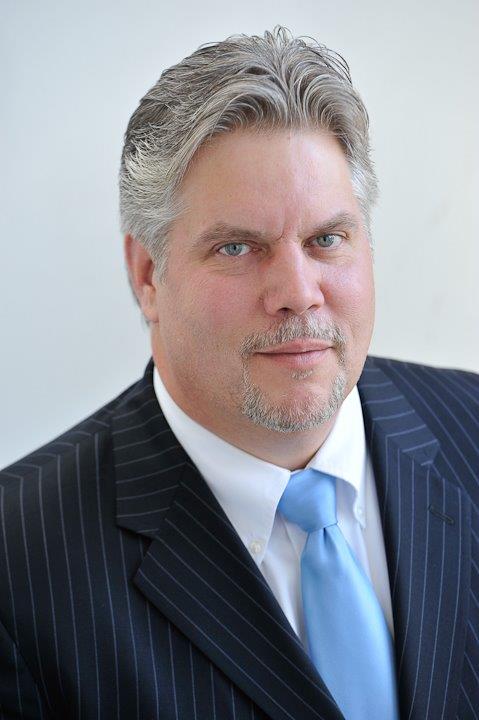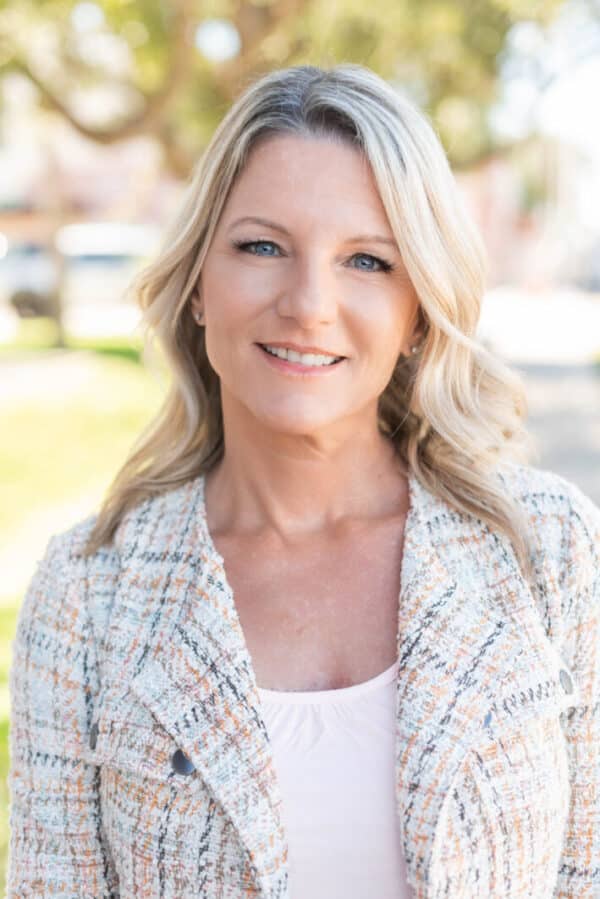Listen to this podcast interview of Michael Quartararo in its entirety here or read the highlights below to get important insights on e-discovery training.

Meet Our Guest Expert
Mike Quartararo is the President of the Association of Certified E-Discovery Specialists (ACEDS), the world’s leading organization for training and certification in e-discovery. For more than 10 years, ACEDS has trained lawyers, paralegals and other legal support professionals at law firms, corporate legal departments, the government, and in academia. He is also the author of the 2016 book Project Management in Electronic Discovery, now in its second edition.
Michael has been consulting in e-discovery, information governance, project management and legal technology for 25 years, including 10-year stints at Skadden Arps Slate Meagher & Flom LLP and Stroock & Stroock & Lavan LLP. He also operates a successful consulting practice that provides guidance to corporate legal departments and law firms.
A graduate of the State University of New York, he also attended law school in London. He is a certified Project Management Professional (PMP) and a Certified E-Discovery Specialist (CEDS). He frequently writes and speaks on e-discovery, legal operations, project management and technology topics. Reach him via email at mquartararo@aceds.org or on Twitter @mikequartararo.
MICHAEL’S ROLE AS PRESIDENT OF ACEDS
I’ve been here about three and a half years now and it’s been a wild ride. You know, we’re an educational association, so our focus is really improving people’s career, enhancing their networking, and really just upskilling folks so that they can find more fulfilling roles in the industry.
What do I do on a daily basis? I am responsible for the association. So, we’ve got events that we’re at. We’ve got our training and certification programs. All of those require updating. Also, all kinds of marketing initiatives to get the word out and get people interested in what we’re doing.
I write for the blog and speak on different panels, as well as all of the administrative things that come with running a small team and an association that has a global footprint.
I came to the realization that I was meant to be a teacher or instructor or a professor, or whatever you want to call it, because I’d been doing it my whole career.
Even back when I started as a paralegal; when we were learning technology, it was part of my job to share what I’d learned with lawyers and paralegals and other law firm personnel to get them up to speed. So, I’ve been teaching pretty much my whole career and now I just get paid for teaching.
HIS PATH TO E-DISCOVERY CERTIFICATION
The CEDS certification actually didn’t exist when I was a litigation paralegal. The association, ACEDS, is only about 12 years old.
It was founded in 2010 by some enterprising lawyers and legal support personnel. We all met in Miami for weeks on end. We asked, what are the things that people need to know? Remember, even if you go back 12 years, e-discovery is still a pretty young industry by comparison.
I got certified in the first beta group, which was, late 2010, early 2011. I only worked on one portion of the exam. There were 40 or 50 other people involved. It was a very long process to develop the exam and work with the psychometricians who vetted the questions and really built out the study materials.
That was my path to e-discovery certification. It didn’t exist years ago, but you know, I’ve literally been doing e-discovery since before they called it e-discovery.
Dive into what is e-discovery?

IS IT TOO LATE TO GET YOUR E-DISCOVERY CERTIFICATION?
Well, I’m going to push back on that. I wouldn’t be doing the association any service by not doing that. It’s a fair point. I understand. Many paralegals sort of get caught up in their career and what they’re doing, and they go to work, they do their job, and they do it well. Paralegals are some of the smartest and most capable people in the legal space.
But there’s always opportunity to grow beyond just being a paralegal. We see junior paralegals grow into case managers. Well, it’s no different in e-discovery. Your path to e-discovery certification can start at any time. You become an e-discovery project manager, or an e-discovery project coordinator or specialist.
It’s just picking up a new skill. It’s no different than moving from, say, litigation to intellectual property or to bankruptcy. There’s a certain skillset that comes with each practice area.
E-discovery happens to be focused on litigation, although nowadays the processes that are used in e-discovery can span any practice area. I don’t know any practice area that doesn’t somehow involve electronic documents. So it’s really an opportunity, I think frankly for paralegals, regardless of what practice area you work in to learn something new. And really, look, I made a whole career out of it, and there’s 10,000 other people who have pursued their e-discovery certification.
E-DISCOVERY SKILLS ARE REQUIRED IF YOU WORK IN LITIGATION
I think that’s right. That’s 100% correct. I don’t think there is a litigation matter that doesn’t involve some electronic document. Whether it’s a text message, a Word document, a PDF, a spreadsheet, or a presentation. Two parties are opposed to each other. In litigation, there’s an obligation to collect any relevant material, and that material’s going to be on a computer somewhere or some other device.
I don’t know how you navigate a litigation matter without understanding how to properly collect, process, review, and produce that electronic information. Getting e-discovery training makes sense today. I’m going to go out on a limb here and say:
You’re not really working in litigation if you don’t know e-discovery.
PARALEGAL ADVICE IF YOUR ATTORNEY WANTS IT IN PAPER
That may still happen today. I’m sure there are still paper documents involved in litigation. The challenge that arises is when you print something out and then you re-scan it, you lose all the metadata, you lose the searchable text. You lose some of the functionality that we have available in the e-discovery industry.
The technology has gotten so advanced that we’re using machine learning and AI and tools like those to parse through large volumes of data. So just to back up and answer your question directly, even if you’re a small firm and you have small matters and small numbers of documents, uh, why wouldn’t you want to capture those electronic documents in a way that makes it much more efficient to work with them, to search them, to categorize them, or e even simple things like creating, you know, a witness book for a deposition.
It just makes so much more sense to do it with today’s computers and technology. The federal rules talk about producing electronically stored information in a way that is usable. If you are printing out documents and then just scanning them and turning over TIFF images or PDFs, it’s not really usable to the other side (in today’s world anyway). You can get some pushback from opposing counsel or even perhaps the court.
There are, of course, exceptions. Some firms, certainly smaller firms, don’t have the internal resources or the training resources or even the technology in-house, and so they’re relying on an outside vendor to do the e-discovery work. And that’s fine, but still, if you’re a paralegal or a case manager or an attorney, you’re responsible for moving a matter forward. This is why e-discovery training can make a profound impact on your career no matter where you work.
You have to know how to manage that vendor. You have to make sure that the vendor’s doing the right thing. You need to know e-discovery for that reason as well.
There are really simple tools out there that will just hold your documents in a safe, secure place. They will keep them organized by matter, enable you to do some searching, sorting, and filtering. They will help you find things that you need very quickly rather than going to a case room and pulling a box off a shelf and rifling through a box and post-it notes and all that. That whole world that we used to live in. It’s just much more efficient today to do it using computers.
There are exceptions. I think they’re few and far between.
At the end of the day, you’re not doing litigation if you’re not doing e-discovery. That’s the bottom line.

THE IMPACT OF AI ON E-DISCOVERY
I think to some extent, AI and machine learning have really impacted document management, document review, document production, and the ways in which we analyze what we’ve got in terms of discovery material.
There have been huge strides made there with technology-assisted review. I just came from legal week last week (the big legal tech conference in New York City), and the word of the day was ChatGPT and how it’s going to upend e-discovery and the legal business. And I just don’t see it yet.
I don’t think we’re there yet. There are issues with the data that’s in the ChatGPT engine. First of all, it’s limited in date. I think it only goes up to sometime two years ago or something like that. And you have to think about the source. Where did all that data come from? That data that was ingested into the ChatGPT engine is really just sort of scraped from the internet, right?
What’s being excluded there? Anybody who doesn’t have access to the internet… their view or their thoughts or their writings are not included, right? Who has high speed internet? Think about who that is and how that impacts the data that’s actually in there.
As it has been well reported in the news, these generative AI tools are not infallible. They’re not perfect. The standard is reasonableness, but if you enter something into one of these chat engines and you get really bad information or even sometimes dangerous information back, that’s just not even close to reasonable.
To answer your question, I think we’re not there yet. I think that certainly machine learning has made some contributions that make things more efficient. But you know, the true sort of AI robots replacing lawyers doing document review, we’re not there yet. And frankly, I don’t know that we’ll ever get there.
We don’t have a machine yet that is capable of reasoning like a human, and so I just don’t think that’s going to change much. These are tools. At the end of the day, these are tools that can enhance and make you more efficient, but unlikely, I think, to ever really replace people.
We have seen a good deal of automation in the e-discovery space and things that we typically sort of refer to as “machine time.” This is moving data from host collection into processing. For example, you pretty much set your parameters for processing, and you are pushing a button to really just move that data through the pipeline doc review to a certain extent. The TAR (technology-assisted review) tools that are out there, they’re not perfect. You do need to have some level of human QC, I believe, in order to make sure that you’re getting the outputs that you want.
I don’t think that paralegals will be replaced in the same way that I don’t think lawyers will be replaced. Again, it comes down to the human reasoning component – the piece that machines just are not able to replicate.
Repetitive automated tasks? Yes, some of those things can be automated. A report out today by Goldman Sachs said that 25% of the world’s jobs are going to be eventually replaced by AI, machine-learning and robotics. It depends what you’re doing, but that thinking piece, that cognition that we do, that no one else (at least that I’m aware of) is able to really do.
Find out if paralegals can be replaced by robots.

The E-Discovery Certification Exam
Q – Let’s talk a little bit about the test, because anybody who’s even approached the subject or is on the path to certification has probably heard the rumors that it’s hard. It’s a very hard test. In order to walk away and have those CEDS credentials, you’ve got to earn it. So can you tell me a little bit about it and what someone might expect or do? How would they plan to pass it?
A – Yeah, and I like that people have the impression that it’s hard. I think it can be a little bit intimidating. It’s not as hard as you think, but at the same time, I’ll say that if it was easy, everyone would have it.
One of the things that we really pride ourselves on is that when you do pass the CEDS exam, when you get that certification, you know what you’re doing.
You know what you’re talking about because you can’t pass it if you don’t. And so that’s a great segue into the exam.
What is the CEDS exam?
The CEDS exam is the one certification in the industry that is sort of end-to-end e-discovery across the EDRM (e-discovery reference model). All of the sort of handful of processes that you need to get right at every stage of the e-discovery lifecycle.
It’s not a certification on a particular product. We are software agnostic. We don’t care what tool you’re using. No matter what tool you have, there are still a handful of things you need to get right when it comes to collection, processing, review, production, and so forth. That’s what we’re testing.
The exam has 145 questions. You have four hours to take it. When you enroll, you have a year to prepare for the exam. That’s not because it’s hard and it takes a year to prepare. Some people do it in months, in weeks. We give people time because most of the people who are studying, preparing for the exam and there are over 500 people right now actually studying, preparing. They have lives and they have to work, and so they’re doing it after hours. We give people plenty of time to do it and ACEDS is really here to help you.
We have study groups that run two, three times a year. In these study groups, 25 people get in a Zoom room and they have conversations, learn things from each other, and share their experiences. They go over practice questions to help them prepare.
We have a mentorship program. When you enroll, you get access to about 11 hours of lectures. They are mostly of me talking about best practices in e-discovery. You also get a study guide that contains all the information you need to know to prepare for the exam.
We’re really here to help people succeed. I get that people have a certain fear of the exam. People have the same thing for SATs, the bar exam, pick an exam, right? Exams are stressful, but we think that we have figured out ways to help people succeed. And that’s why we’re here. We’re not just going to say, “Here, give us your enrollment fee, and have a nice day.”
We’re going to help you prepare for that path. We’re not going to just leave you sort of to the wolves. We want you to succeed. It helps us. If you succeed, we succeed. That is the message that I’d really like to get out to paralegals.
But Does An E-Discovery Certification Help My Paralegal Career?
Q – If you’re applying for a litigation paralegal position and there’s someone who’s got their CEDS and someone who doesn’t, that could be a determining factor. I don’t know for certain. I’m just throwing it out there for the listeners. So pay attention to those numbers people.
Do you see a difference reflected in salaries between just a litigation paralegal versus an e-discovery project manager?
A – Yes, absolutely. And I should preface all this by saying, salaries in the legal space for paralegals, and even for e-discovery, honestly, tends to remain very regional.
It really depends where you are in the country. If you work in a big city like New York, Chicago, Los Angeles, you’re going to see higher salaries as a general matter. Even between LA and New York, you’ll see a difference, and you’ll see that on the attorney’s side as well. Salaries are generally a little bit different. But it’s been remarkable to watch e-discovery salaries really skyrocket in the last, four or five, six years. There are e-discovery project manager roles in New York City that start at $150,000 a year.
Paralegal salaries are not getting that high unless you’re moving into sort of middle management, case management or some kind of leadership role. You’re not even breaking six figures.
Do the math. And that’s not to say every job jumps out at you like that. I’m talking about a New York City big law firm, experienced project manager. But salaries can go even higher than that. It’s pretty common.
LITIGATION PARALEGALS ALREADY HAVE WHAT IT TAKES
The truth is, as a litigation paralegal, you already have the foundation for everything that you need to catapult your career into e-discovery.
You have that legal foundation, that’s 50% of the work. Understanding how the legal system works, the processes that a litigation goes through. And whether that’s intellectual property litigation, commercial litigation, bankruptcy litigation, all those things. If you’ve been working in those areas, you already know what discovery is.
You know what the federal rules of civil procedure are and how they apply to your work. All you’re now doing is using technology to enhance those e-discovery processes. That’s a career boost for you.
Get tips on how to ask your firm to invest in you.
If you are just starting your career as a new litigation paralegal and haven’t had much exposure to e-discovery, get a copy of Michael’s book! Use discount code “coupon20” to save 20% off Michael’s book Project Management in Electronic Discovery.
Find out about a path from paralegal to lawyer.
Meet the Author

Ann Pearson is the Founder of the Paralegal Boot Camp, and host of the Paralegals on Fire! Podcast Show, and passionate about promoting the paralegal profession.
Ann spent 20 years working as a paralegal manager and a litigation paralegal before opening the Paralegal Boot Camp in 2010.
Ann’s training programs focus on adding immediate value to a paralegal’s career and bridging the gap between what a paralegal learns in school and what they actually do on the job.
Visit the About Us Page to learn more about why Ann started the Paralegal Boot Camp.


























